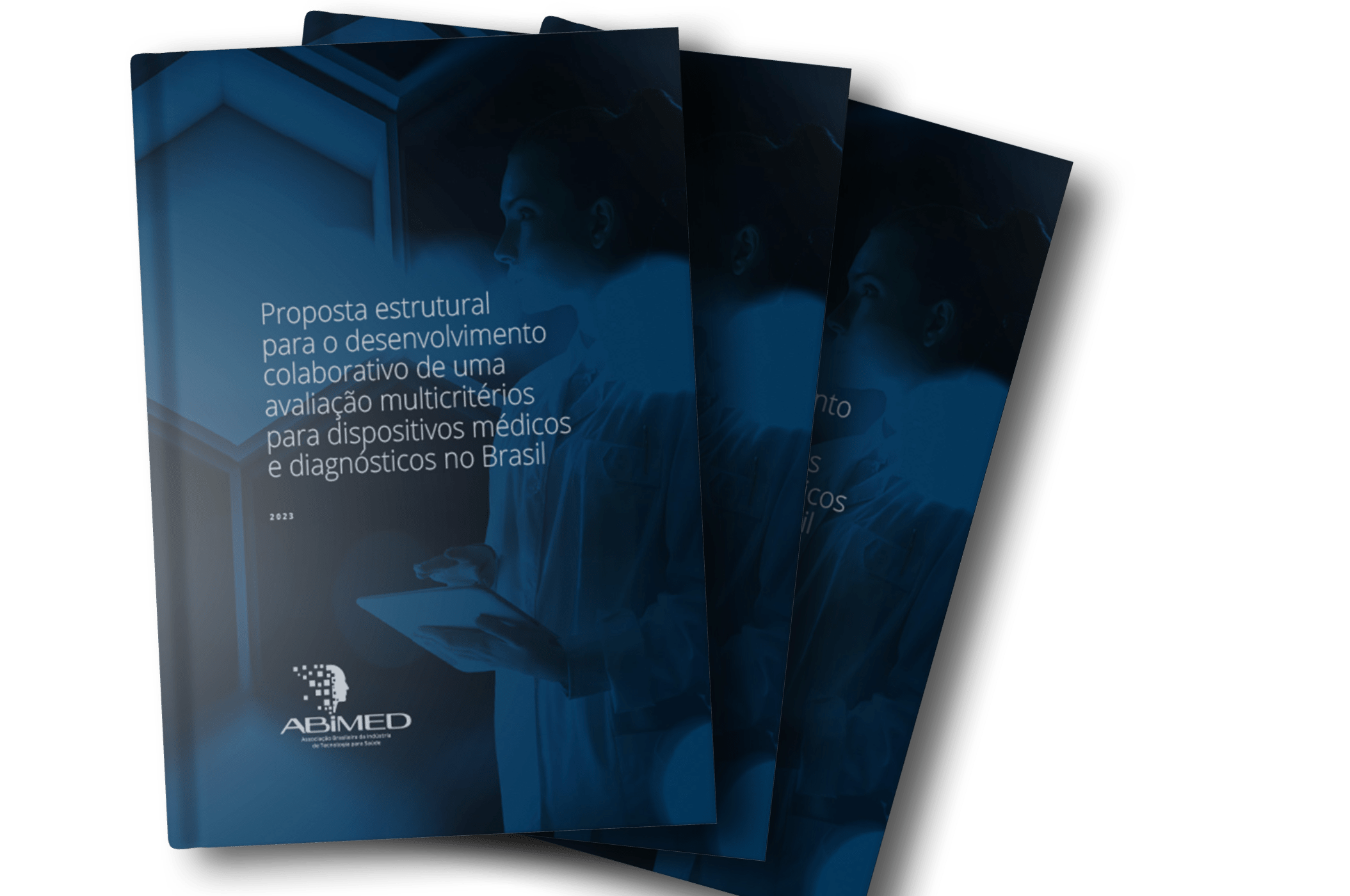ABIMED releases study on good practices of HTA for medical procedures and devices

Publicado em 18/07/2023 • News • English
Submissions, assessments, and decisions on the incorporation of technologies into the SUS – Sistema Único de Saúde (Unified Health System) and the list of the ANS – Agência Nacional de Saúde (National Health Agency) can be prepared with greater technical and scientific rigor, in a faster, more transparent way and with broad social participation. This was the conclusion of the unprecedented study on “Good practices of HTA (Health Technology Assessment) for medical procedures and devices”, carried out by the AxiaBio consultancy and commissioned and sponsored by ABIMED. The survey was exposed during Hospitalar 2023, which took place at the end of May in São Paulo (SP).
Felipe Carvalho, ABIMED’s regional director in Brasilia, explained the motivation for the sector’s first initiative to propose a methodology for HTA: “There was a pain from the medical devices sector regarding the evaluation of the ANS list, for example, about requirements that were not possible to meet, ethical barriers, among others. Based on this discomfort, we talked to several actors to produce a study that would be an industry contribution to this discussion”.
One of the conclusions is that the medical device industry should switch its role from submission to proposal making. Another finding is that the population will benefit from new measures in this area, since, with the acceleration of the technology incorporation into the SUS, it should improve Brazilians’ access to the most advanced resources, reducing an eight-year technological delay in relation to other countries. It is worth remembering that medical devices are present from the prevention of diseases to the treatment and recovery phases of people’s health.
The research also delves into secondary data from around the world to understand the HTA dimension for medical devices and is summarized in three points: who should be the group to evaluate medical devices, what are the evaluation criteria, and how should the process take place.
Several actors were heard during the research to enrich the analysis. For Gabriela Tannus Branco de Araújo, senior partner at Axia Bio Group, the first to benefit from the research will be the patient, “because the proposal is not to make the process easier, but more organized and calibrated with a good technical level,” said the executive.
“The industry needs to get out of submission and get into the role of construction,” said Fernanda Oliveira, senior access manager at J&J Medtech. Scientific researcher Fotini Toscas highlighted other aspects of the research, such as ways to minimize uncertainties in the field of medical devices, including identifying the optimal timing of decisions involving the life cycle of the technology. She highlighted the relevance of the analysis since training and qualifying professionals in HTA has become an essential aspect. “The World Health Organization recognizes that medical devices are becoming increasingly indispensable in healthcare delivery. Among those primarily responsible for their design, development, regulation, evaluation, and training are biomedical and clinical engineers, working in conjunction with other healthcare professionals.”
The study “Good Practices of HTA for medical procedures and devices” is, therefore, a path of dialog that ABIMED hopes will be welcomed by the National Commission for the Incorporation of Technologies (Conitec) in SUS, a body that advises the Ministry of Health.

 Portuguese
Portuguese
 Spanish
Spanish
 English
English






















